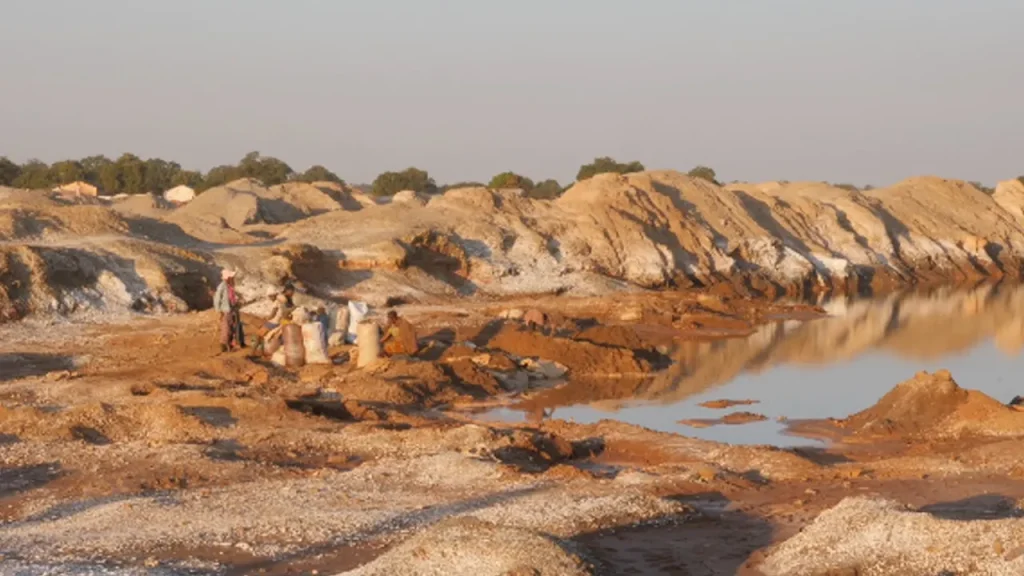Breaking China’s Grip on Rare Earth Minerals: America’s African Opportunity
The United States is ramping up efforts to counter China’s dominance in the rare earth minerals sector by forging stronger partnerships with African nations. This strategic pivot recognizes Africa as a crucial frontier in reducing America’s dangerous dependency on Beijing for materials essential to modern technology and national defense.
Rare earth elements (REEs) comprise 17 metals that have become indispensable to modern life and security. These minerals power our smartphones, computers, and televisions, while enabling renewable energy technologies like wind turbines, solar panels, and electric vehicle batteries. More critically, they are vital components in advanced defense systems, including jet engines, missile guidance systems, satellites, and GPS equipment. The Brookings Institution has labeled these materials “critical for both human and national security,” yet China currently controls approximately 60% of global extraction and a staggering 85% of processing capacity. This imbalance has created a precarious situation where the United States imports roughly 70% of its rare earth needs from its primary geopolitical rival, raising serious national security concerns that the Biden administration has been accused of neglecting for four years.
Africa’s untapped mineral wealth represents a golden opportunity to rebalance this equation. The African Union’s Minerals Development Center recently announced that major specialized rare earth mines are scheduled to come online by 2029 in Tanzania, Angola, Malawi, and South Africa – potentially yielding almost 10% of the world’s supply. Despite possessing a landmass three times larger than Australia and Canada combined, Africa currently attracts only 10.4% of global mineral exploration spending, down from 16% in 2004. This underinvestment persists despite sub-Saharan Africa being the world’s most cost-efficient region for mineral exploration, with a mineral-value-to-exploration-spending ratio that outperforms Australia, Canada, and Latin America. Dr. Gracelin Baskaran, director of the Critical Minerals Security Program at Washington’s Center for Strategic and International Studies, calls Africa “the last great frontier of mineral discovery,” highlighting that even countries with established mining histories like Zambia and the Democratic Republic of Congo (DRC) have barely mapped half their territory.
The Trump administration has identified this opportunity and is taking concrete steps to expand America’s presence in Africa’s mining trade. A State Department spokesperson told Fox News Digital that “the administration’s approach prioritizes partnerships with African nations to ensure their minerals flow west, not east to China.” One significant initiative is the continued commitment to a $550 million loan for developing the Lobito Corridor – an 800-mile infrastructure project connecting the mineral-rich regions of the DRC and Zambia to Angola’s Atlantic coast, providing direct shipping access to the United States. This project strategically offers an alternative to Chinese-controlled transportation routes for minerals from Africa’s Copperbelt. Additionally, the administration views the peace deal it brokered between the DRC and Rwanda in June as partially an economic strategy, with the State Department noting that the bilateral agreement with the DRC “is designed to open the door for new U.S. and U.S.-aligned investments in strategic mining projects” throughout the country.
The urgency of these efforts stems from China’s aggressive approach to securing African resources. Senator Jim Risch, Republican chairman of the Senate Foreign Relations Committee, described reliance on China for critical minerals as “a top national security risk.” The State Department has been equally blunt, stating that “China’s dominance in global mineral supply chains — specifically in processing and refining — is a threat to both U.S. and African interests.” Officials accuse Beijing of exploiting Africa’s natural resources through “state-directed strategies” that “consolidate control over upstream mining assets, perpetuate opaque governance structures, degrade local environments and create economic dependencies that undermine regional stability.” The situation has become so concerning that experts have labeled it a form of economic colonialism that threatens both American security and African sovereignty.
However, the United States possesses a key advantage in this competition – China rarely engages in initial mineral mapping or exploration, typically acquiring projects only when they’re already under development or nearing production. This creates what Dr. Baskaran calls “a real opportunity for the United States and its allies” to establish a stronger presence through “targeted investments in geological mapping and early-stage project development.” Specific opportunities exist in countries like Namibia, where the Lofdal project represents a major alternative to Chinese rare earth supplies. By engaging earlier in the development process and offering partnerships that respect African sovereignty and environmental standards, America can present itself as the more desirable partner. The growing recognition of Africa’s strategic importance in the rare earth mineral sector signals a potential shift in geopolitical dynamics, with both economic prosperity and national security hanging in the balance for the United States and its African partners.













